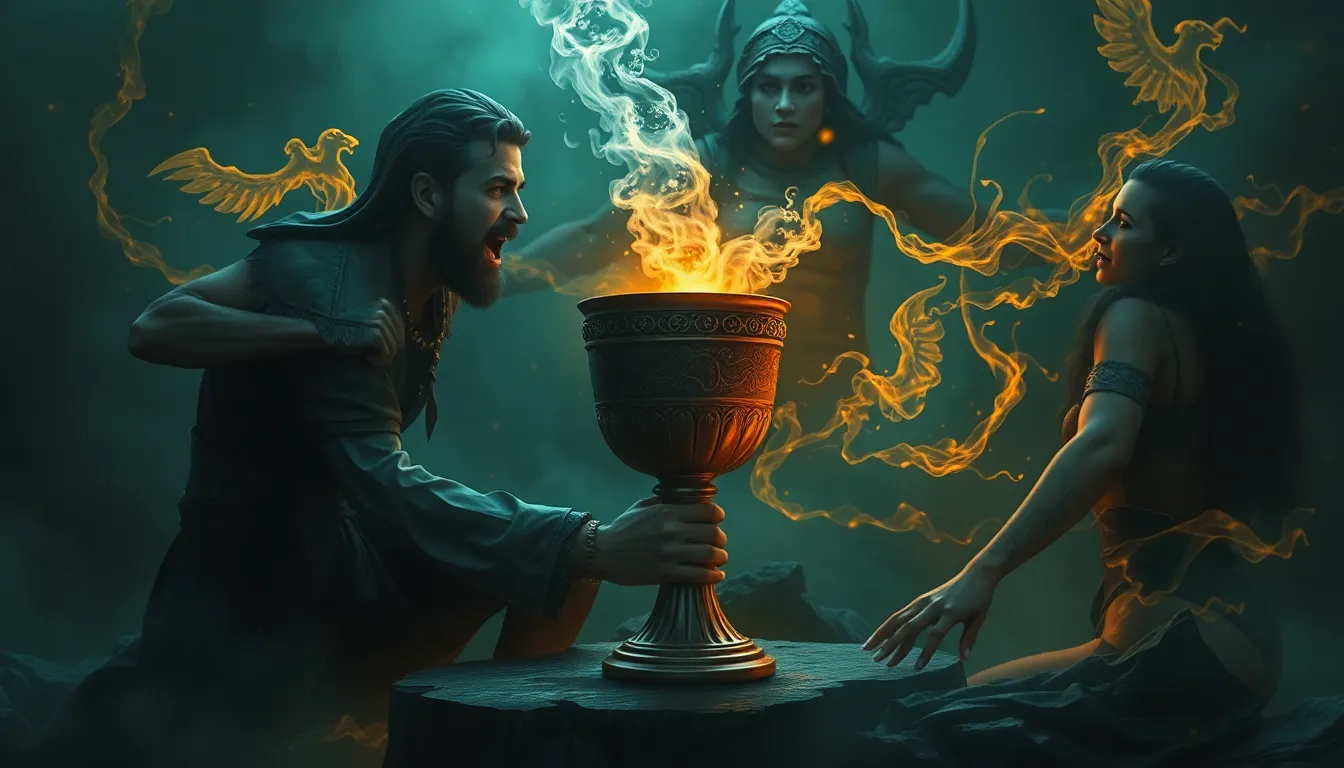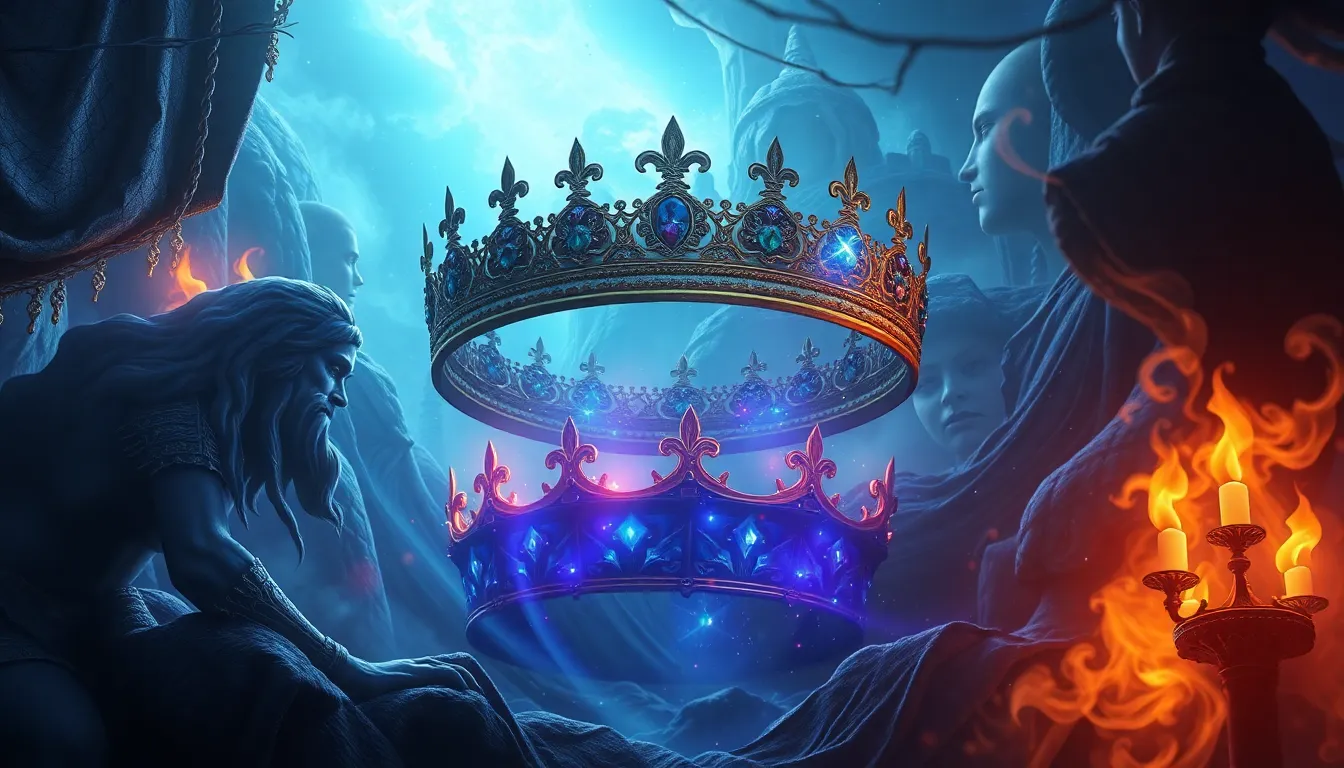The Chalice of Destiny: Drinking from Fate’s Cup
Introduction
The concepts of destiny and fate have intrigued humanity for centuries. They evoke a sense of wonder and contemplation about our lives and the forces that shape them. At the heart of these concepts lies the metaphor of the Chalice of Destiny, a powerful symbol that represents the choices we make and the paths we take. This article explores the implications of ‘drinking from fate’s cup’, examining how this metaphor manifests in various contexts, from mythology to modern life.
Historical Context of Destiny in Mythology
Destiny has been a central theme in numerous mythologies across cultures, often depicted as a predetermined path that individuals must follow. In Greek mythology, the Moirai, or Fates, were three sisters who spun, measured, and cut the thread of life, symbolizing the inevitability of fate. Similarly, in Norse mythology, the Norns dictate the fates of gods and men alike.
The symbolic role of cups and vessels in ancient rituals cannot be overlooked. Many cultures used cups to hold sacred drinks during rituals, signifying the importance of choices made during these ceremonies. Notable myths, such as the story of Hercules, illustrate the consequences of choices, where drinking from the wrong vessel could lead to dire outcomes.
Symbolism of the Chalice
The chalice often symbolizes nourishment and enlightenment, serving as a vessel that holds not only physical sustenance but also spiritual wisdom. In religious contexts, the chalice is associated with communion and the sharing of divine grace. It is a sacred object that invites individuals to partake in a deeper understanding of life and existence.
However, the chalice also embodies a duality; it can represent both a blessing and a burden. While drinking from the chalice can lead to enlightenment, it can also bring heavy responsibilities and unforeseen consequences. This complexity adds depth to our understanding of destiny and the choices we make.
Philosophical Perspectives on Fate and Free Will
The philosophical debate surrounding determinism versus free will has persisted through the ages. Determinists argue that every event, including human actions, is determined by preceding events, suggesting that drinking from the chalice is a mere illusion of choice. In contrast, proponents of free will assert that individuals have the power to make choices that shape their destinies.
Different philosophical schools interpret the act of ‘drinking from the chalice’ in various ways. Existentialists, for instance, emphasize personal responsibility and the importance of choices in defining one’s essence, while stoics might view fate as a guiding force that should be accepted rather than resisted. These beliefs significantly impact personal accountability and how we navigate life’s challenges.
Literary Representations of the Chalice of Destiny
The motif of the ‘chalice of destiny’ frequently appears in literature, symbolizing the pivotal choices characters must confront. In J.R.R. Tolkien’s “The Lord of the Rings,” characters like Frodo must choose whether to bear the burden of the Ring, a powerful object that represents both temptation and destiny.
Authors use the chalice as a narrative device to explore themes of sacrifice, choice, and fate. For example, in Shakespeare’s “Macbeth,” the protagonist’s ambition leads him to drink from the metaphorical chalice of power, resulting in tragic consequences. These literary representations encourage readers to reflect on their choices and the potential outcomes of their actions.
The Psychological Impact of Fate on Decision-Making
Beliefs in fate can significantly influence human behavior and decision-making processes. Psychological theories suggest that individuals who believe in fate may approach life’s challenges with a sense of resignation, while those who believe in free will may feel empowered to take control of their destinies.
Case studies illustrate the impact of perceived fate on decision-making. For instance, individuals who attribute their successes or failures to fate may exhibit different coping strategies compared to those who believe their choices directly influence their outcomes. This understanding of psychology provides insight into how beliefs about destiny shape our lives.
Modern Interpretations of Destiny and the Chalice
In contemporary culture, the concepts of destiny and fate continue to evolve. Popular media, including films, books, and music, often reference the chalice as a metaphor for the choices individuals face. Movies like “The Matrix” and “Sliding Doors” explore the idea of parallel universes and the impact of choices on one’s destiny.
Social media plays a significant role in shaping modern interpretations of fate. Platforms allow individuals to share their stories of serendipity and chance encounters, reinforcing the idea that life is a series of choices influenced by both fate and free will. This discourse encourages a collective reflection on the nature of destiny in the digital age.
Personal Stories: Real-Life Experiences with Destiny
Anecdotes from individuals who feel they’ve ‘drunk from the chalice’ often highlight the role of serendipity and chance in shaping life paths. Many people recount experiences where seemingly small decisions led to significant life changes, reinforcing the interconnectedness of fate and choice.
- One individual might share how a chance meeting led to a life-changing opportunity.
- Another may recount a moment of intuition that guided them towards their true passion.
These personal stories reveal the lessons learned from embracing or resisting fate, showing that our journeys are often a blend of conscious choices and unforeseen circumstances.
Embracing the Chalice: How to Navigate Life’s Choices
Navigating life’s choices can be daunting, but embracing the chalice of destiny can provide clarity. Here are practical strategies for individuals facing significant decisions:
- Reflect on Values: Understand your core values to guide your decision-making process.
- Consider Consequences: Take time to evaluate the potential outcomes of your choices.
- Stay Open to Change: Embrace the idea that change is a part of life and adaptability is crucial.
- Seek Guidance: Don’t hesitate to ask for advice from trusted friends or mentors.
Balancing fate and free will requires a mindset of acceptance and resilience. By acknowledging the role of destiny while actively engaging in the choices we make, we can navigate life’s complexities with confidence.



